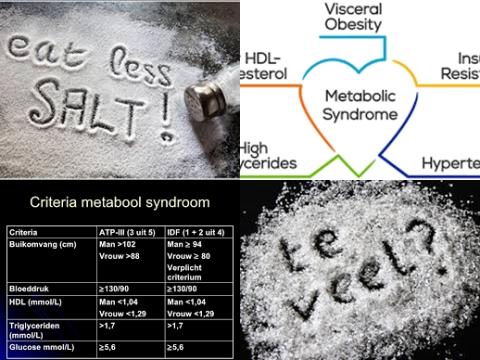
Objectives:
The prevalence of metabolic syndrome (MetS) has been greatly increased, worldwide. In recent years, investigators have proposed that sodium might contribute to the development of metabolic syndrome; however, the published data were conflicting. Therefore, this review article (meta-analysis) has been conducted.
Does sodium contribute to the development of metabolic syndrome?
Study design:
This review article included 17 observational studies with 66,274 participants.
Results and conclusions:
The investigators found that subjects with metabolic syndrome had significantly higher levels of sodium compared to healthy controls [Hedges' g = 0.21, 95% CI = 0.12-0.29, I2 = 68.6%]. Subgroup analyses revealed that the difference was significant when the sodium status was assessed using urinary sodium levels.
The investigators found that random effects meta-regression analysis also revealed that body sodium level increases with the number of metabolic syndrome components.
The investigators found that participants with highest dietary/urinary or serum sodium levels had a significantly 37% higher chance of developing metabolic syndrome when compared with participants with the lowest sodium levels [OR = 1.37, 95% CI = 1.31-1.42, I2 = 86.9%].
The investigators concluded that higher sodium input into the body is directly associated with the likelihood of metabolic syndrome. Prospective cohort studies and well-designed randomized clinical trials considering the effect of sodium restricted diets on the risk of metabolic syndrome as an outcome are necessary to represent the causal association.
Original title:
Sodium status and the metabolic syndrome: A systematic review and meta-analysis of observational studies by Soltani S, Kolahdouz Mohammadi R, […], Salehi-Abargouei A.
Link:
https://www.ncbi.nlm.nih.gov/pubmed/28846446
Additional information of El Mondo:
Find more information/studies on overweight and sodium right here.
Find out whether you are overweight or not right here.
Those with metabolic syndrome are advised to select the following food items.
Sodium is part of table salt or sodium choride.
High-sodium or high-salt products are products with more than 0.3 gram salt per 100 kcal. These products are rich in salt.
A high-salt diet is a diet with many products with more than 0.3 gram salt per 100 kcal.